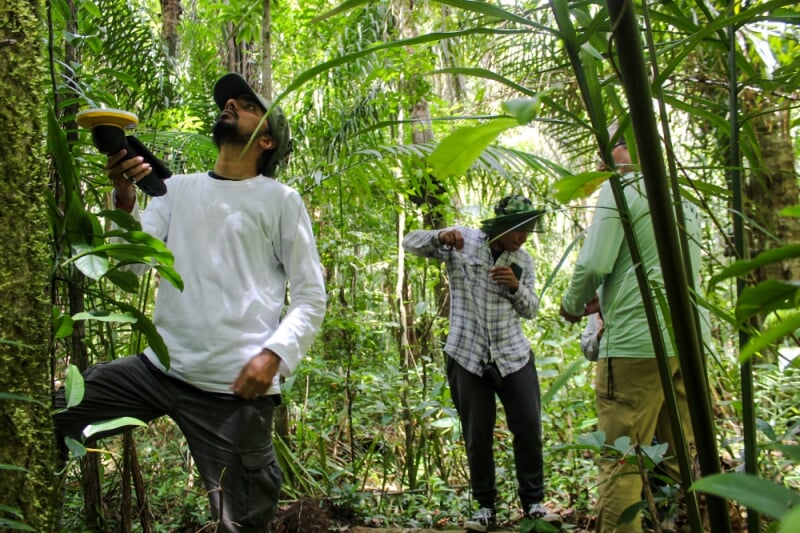Equip Yourself With Fundamental GIS Skills.
Geographic Information Science (GI Science) is the study of how we collect, use, and understand information about places on Earth. This interdisciplinary field focuses on the analysis of maps, satellite images, GPS data, and any other kind of data that tells us where things are. Thus, GI Science brings together ideas from several fields—such as geography (studying the Earth), computer science (processing data), and math (analyzing patterns)—to help us figure out where something is happening, why it's happening there, and how places relate to each other.
For instance, imagine you're a city planner trying to determine where to build a new hospital. You want to make sure most people can reach the hospital quickly, especially in emergencies. To do so, you could study maps of where people live (population data), analyze road networks and traffic patterns to estimate the time to different locations, examine accident reports and emergencies to see where medical services are most needed, and, finally, use computer models to test different hospital locations.
In Natural Resource Management, GI Science might be used to conduct forest inventories to assess the current state of timber resources. This inventory might involve gathering information on the composition, structure, and health of forested areas, which includes data on tree species, age, height, diameter, canopy cover, and distribution. In this scenario, forestry professionals would collect spatial data using various methods, such as remote sensing techniques (e.g., satellite imagery, LiDAR), GPS, and field surveys. These data would be then be analyzed by GIS software.
Intrigued by the possibilities of GIS? Michigan Tech offers a practical, 9-credit graduate certificate that equips students with the foundations of GIS as they are used in Natural Resources.
You can earn this certificate only--or stack it with others to progress towards a master's degree in GIS.
Dive Deeper Into This Online GIS Program.
Want to learn more about this certificate and the others that make up Michigan Tech's Online GIS Program? Then watch the recording below. This video is 39 minutes long, so if you're pressed for time, use the key below to go to the section that contains the information you need.
- Introductions: 0-5:44
- Why Study GIS at MTU? + Dr. Parth Bhatt's Credentials: 5:44 -11:50
- Online GIS Program: (Overview): 11:51 - 20:19
- A Peak Inside the Program: 20:20 - 29:14
- Important Next Steps (Application, the Admissions Process, Contacts): 29:15 - 32:28
- Questions: 32:29 - 38:57
What GIS Courses Will You Take?
This compact online GIS certificate is flexible enough to fit around the demands of your life, your job, and your other responsibilities. All students will take the same three foundational courses.
Required Courses
Why Study GIS at Michigan Tech?
When you earn your online GIS certificate from MTU, you'll receive a quality education. In fact, Michigan Tech is ranked the No.3 best accredited online college in Michigan (EDsmart, 2024). When you study with us, you'll also get the following:

A Versatile, Interdisciplinary Certificate
This online GIS program provides competencies and training that allow you to build on your experiences and expertise, whether it is in forestry, geosciences, social sciences, civil engineering, environmental engineering, and more. Get adaptable GIS skills you can apply in your current job OR a for future career.
An Education From the Best
Get instruction from Parth Bhatt who is not only a passionate instructor, but also an innovator with a breadth of real-world, international experience in GIS, Remote Sensing, GPS, Geospatial data analysis, machine learning, Python, R, ArcGIS Pro, WebGIS, and more.
Customizable Learning Goals
Choose the learning path that aligns with your personal and professional goals. Take one course to accelerate in your current career and earn 3-credits. Or take all three courses, in any order, and earn an the full online certificate.
What Have Some Former Students Said?
"I have been able to implement all of the skills you have been teaching into my daily work to be more efficient, accurate and overall better at my GIS work. Those around me are impressed with the new tools I have been able to bring to the table, the efficiency I have gained, and the end result products that I am putting out. My office's GIS program for DBM, analysis and presentations have been complemented greatly over the past few months.."
" I very much enjoyed the course. You were prompt to respond to emails and very open to meeting with students when they wanted to. My personal life is very busy as I work full-time for the Michigan DNR, have a working spouse, a toddler and our 2nd little one on the way. Coming back to school while having a family to care for was a difficult challenge but your methods and efforts made me feel confident in being able to complete this class successfully. For my learning style and capability I would not change anything in this course."
Who Uses Geographical Information Science?
In general, GI Science is a versatile skill set, used by global professionals in a number of workplaces, such as the following: natural resource management, government agencies, environmental and conservation organizations, urban and regional planning, real estate and property management, insurance industry, and the energy sector.
And, as the field continues to evolve, professionals with GIS experience will likely find additional opportunities in emerging areas and industries that leverage location-based data for decision-making and innovation.
Whether working in your community, in the US, or abroad, the Online Certificate in Geographic Information Science in Natural Resources will prepare you for several career paths.
Possible GIS Jobs
- Conservation Scientist
- Environmental Consultant/Planner
- Forester
- GIS Analyst/Technician
- GIS Project Manager
- Natural Resource Manager
- Wildlife Biologist
- Remote Sensing Specialist
Learn More About Dr. Parth Bhatt.
Parth Bhatt
- Associate Teaching Professor/Researcher
- Program Director, Online Master's of GIS
- Lead GIS & Remote Sensing Analyst, MichiganView
- ppbhatt@mtu.edu
- 906-487-2291
- Noblet Building 189-190
Get Started On Your Online GIS Certificate.
Take the next steps on your online educational journey at Michigan Tech.
Reach out to our kind, dedicated admissions manager, Amanda Irwin. She has a decade of experience helping students evaluate programs, navigate the admissions process, and complete their applications. Email her at globalcampus@mtu.edu or submit the RFI form below.



